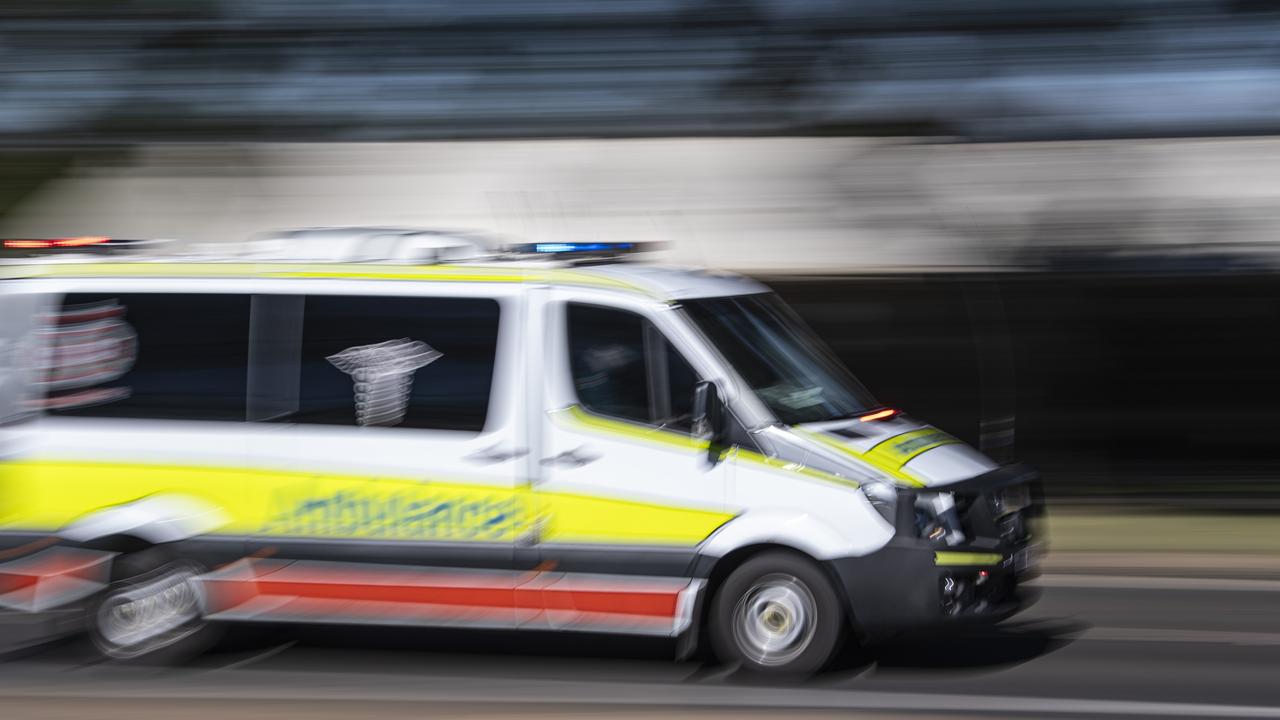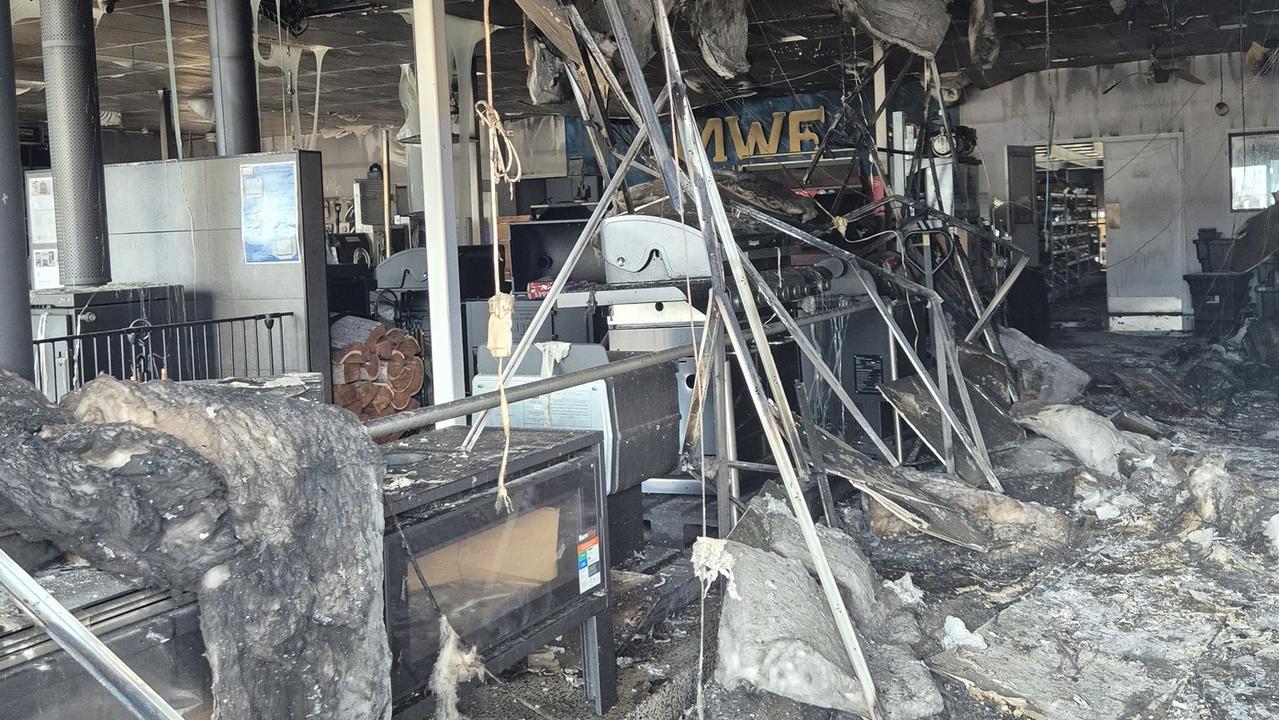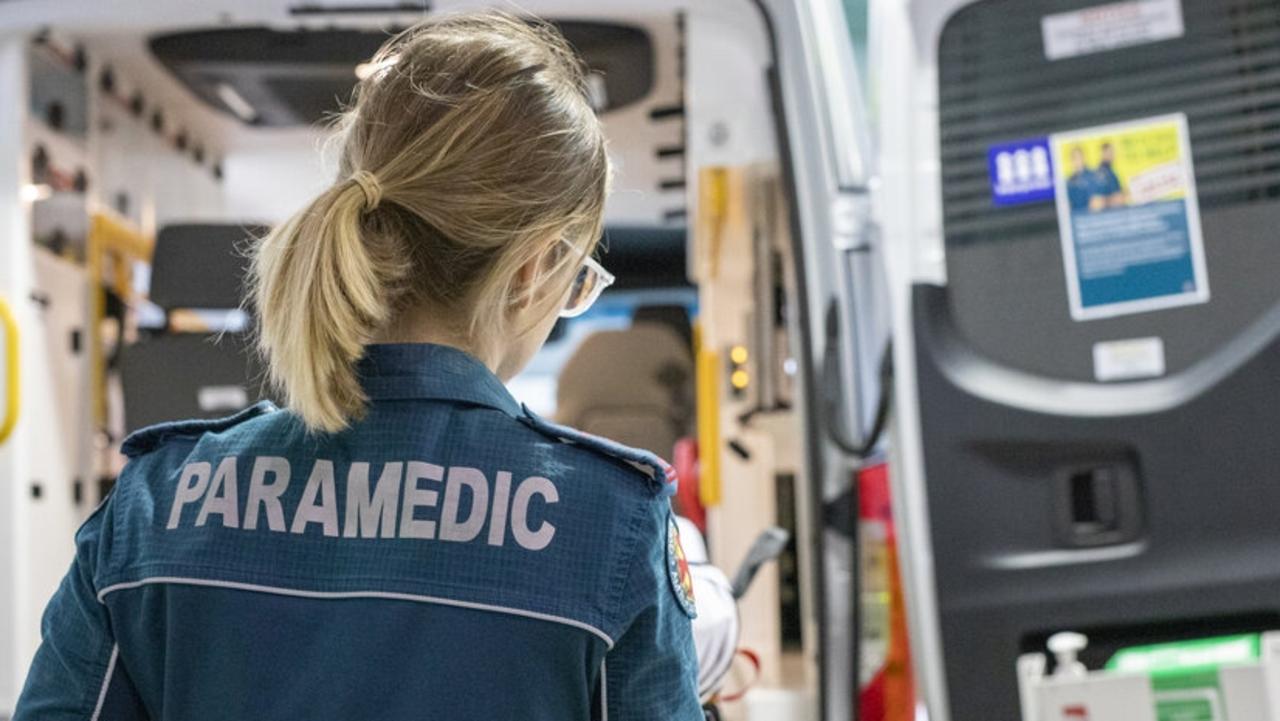Toowoomba jury hears ‘handfuls of remains’ found in shower during Phillip Harris murder trial of Peter Weaver
Unsettling descriptions of what investigators were faced with after the alleged murder and mutilation of a Qld pensioner and his “loyal” dog have been revealed in court alongside horrific photos of a handheld circular saw. *DISTRESSING.
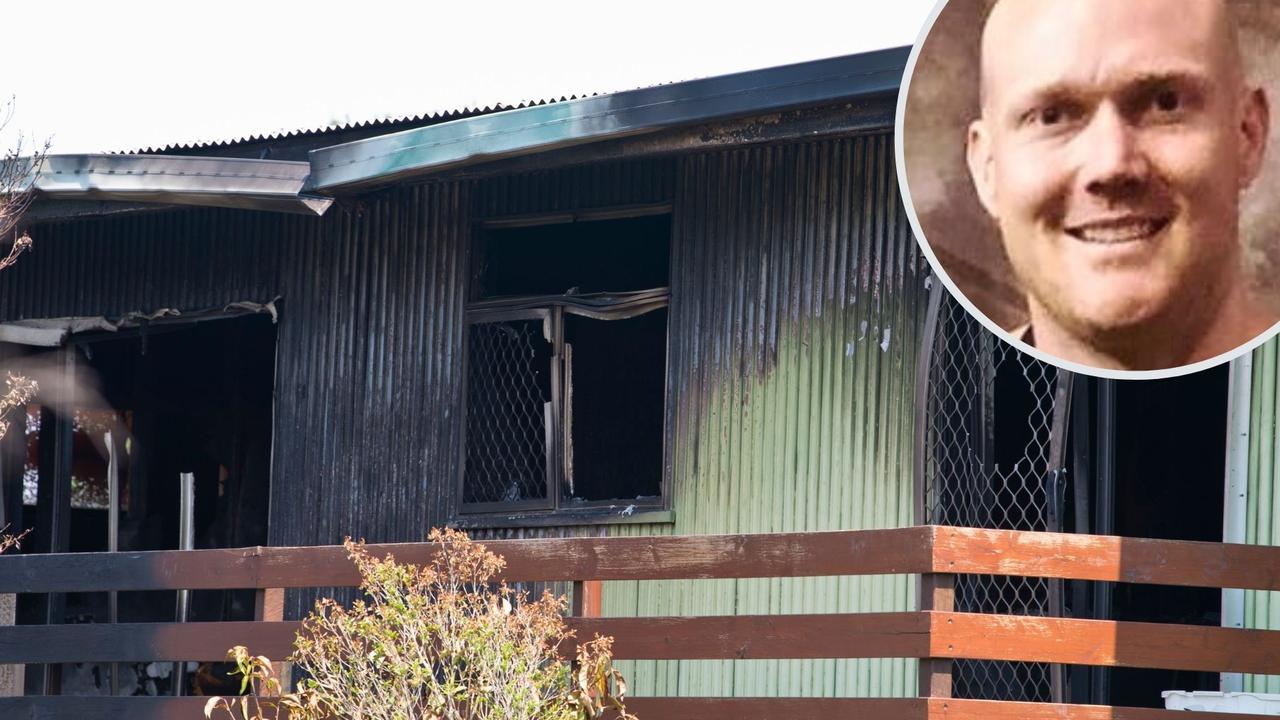
Police & Courts
Don't miss out on the headlines from Police & Courts. Followed categories will be added to My News.
A Toowoomba jury determining whether a 34-year-old man killed and murdered a quiet pensioner in his home alongside his loyal dog has heard grisly forensic evidence about how the alleged murder may have taken place.
The dismembered remains of the 63-year-old father of four, Peter Weaver, were found by firefighters on a hot summer’s evening a week before Christmas in December 2019 alongside his “loyal” Stafford terrier Max.
Max, who was found near the front door of the heavily fire affected home next to a pair of legs, bled to death from a deep 15cm to 18cm cut to his neck – he also had a wound on his rump.
Phillip Harris is charged with murder.
Mr Harris lived with his sister Myf Levingston on MacArthur St, about 100m from Mr Weaver’s home on Rivett St, where the “quiet homebody” kept to himself.

The jury heard the pair met on occasion when their dogs escaped their yards, however weeks before the murder, Mr Weaver’s daughter drove him to a police station to report an assault that landed him in hospital in March 2019 with a head injury and burns to his hands.
The Crown alleges prior to the alleged murder Mr Harris assaulted Mr Weaver and set fire to his air conditioner unit.
Mr Weaver’s family told the court he said “the crazy guy up the street” had assaulted him because the man wanted his prescription Xanax.
Four years after Phillip Alastair Harris’s arrest, he pleaded not guilty to murdering Mr Weaver before the Toowoomba Supreme Court on November, Tuesday 19.
The 34-year-old did however plead guilty to arson.
CCTV captures murder accused at crime scene
The jury heard the day after Mr Harris’s arrest he partook in two police interviews, first telling investigators he never left his home that evening.
When his version of events was challenged, he told the police, “All right, this is where I’m in trouble — I’ll lay it out for you”.
He said he set the home alight after stumbling upon the crime scene because he did not want to be wrongfully accused of being involved and fire was “the easier way to destroy something”.
On December 16, Mr Weavers’ phone was used to take a photograph 4.25pm.
At 4.36pm Mr Harris’s home CCTV shows him leaving home on foot, wearing thongs, a black T-shirt, and black shorts.
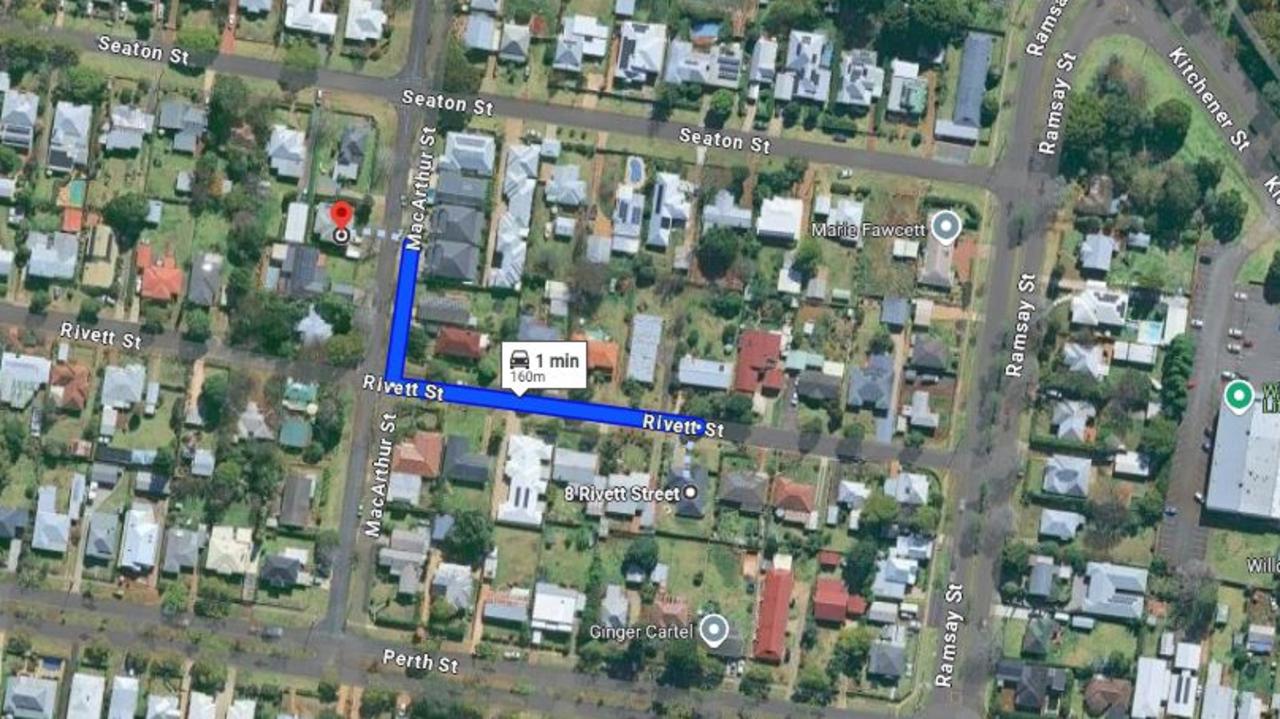
He returned home 53 minutes later in the same clothes holding a beer bottle.
After spending 15 minutes at home, CCTV again captures Mr Harris leaving his home, this time in his white ute – a cord is seen dangling from a full backpack.
Mr Harris’s dashcam and home CCTV captured a number of other trips he took to and from Mr Weavers’ home that evening, the last arriving home about 7.55pm.
Emergency services promptly responded to the house fire at 8pm, and the jury heard a “bubbly and energetic” topless Mr Harris was seen hanging around the streets drinking and getting in the way of emergency services.
‘Knife, circular saw, human remains’: Trial hears murder method theory
A forensic officer hypothesised Mr Weaver bled to death in his bedroom after being stabbed 23 times before his body was dragged down a carpeted hallway to a nearby bathroom where a handheld circular saw was used to remove his limbs.
The remains were located in two areas of the highest home.
The dog and two heavily fire-effected legs were found on curtain-like material near the door of the home, which was on the lower level.
The torso and head, which were also heavily fire-affected, were on the living room floor upstairs, not far from two arms that were placed on a bloodstained mattress with pieces of bloodstained carpet, a lamp, and a bed frame.
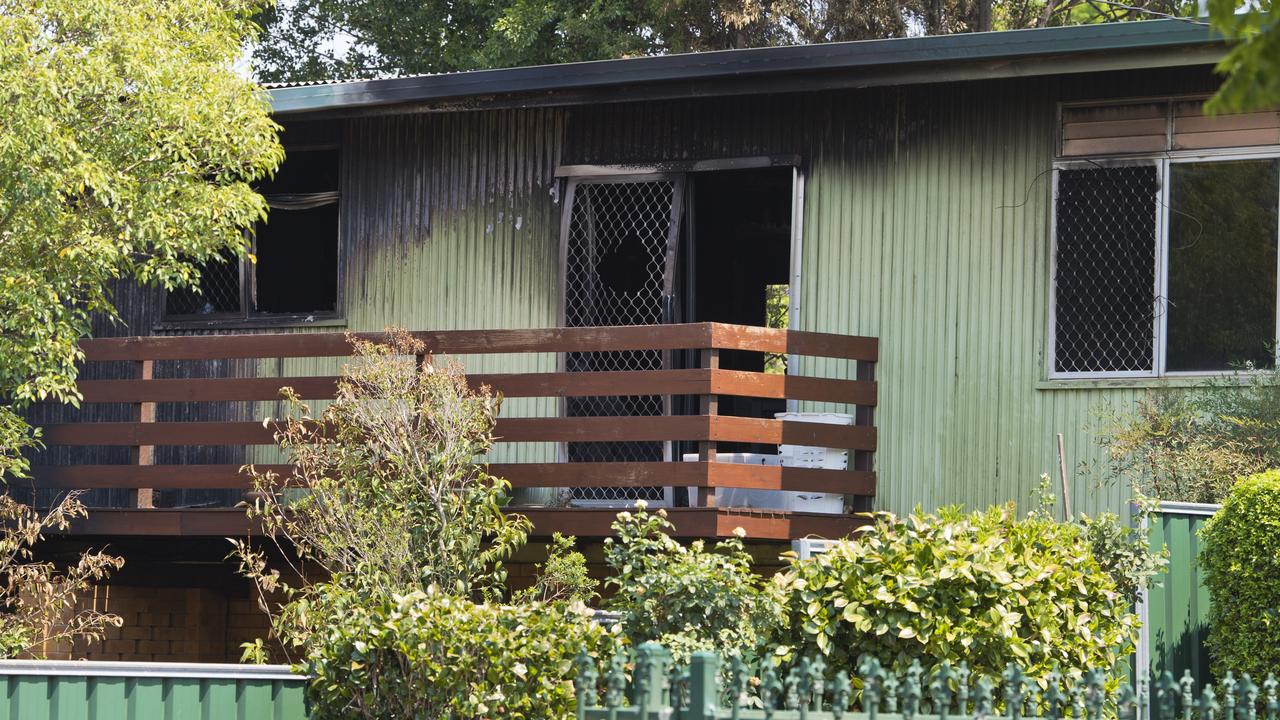
One of the arms under a piece of carpet had been shielded by the fire.
The jury heard next to the mattress was a knife and corded circular saw with a 24-tooth blade attached which had pieces of what appeared to be human remains.
During the cross-examination of a scenes of crime officer, barrister Wesley Seewald put to the senior sergeant that the circular saw found would not have been able to remove a leg from a hip, however this was dismissed due to its speculators nature.
Mr Seewald also asked how the saw was transported and who had access to the evidence.
Earlier in the trial the jury heard police found an open packet of circular saw blades which was missing the 24-tooth blade and officers did not locate a circular saw.
The jury was given the results of trace DNA samples taken from the operational knobs of the circular saw, the saw blade, and knifes found, however the evidence was not heard in open court.
Public barred from murder trial DNA evidence results
Despite the trial being an open court proceeding, the victim’s family, media organisations, and the community were prevented from hearing the results of the trace DNA and blood samples taken during the investigation from the crime scene.
Instead of being read into the public record, the jury was given a document containing the results which was tendered to the court as agreed admissions between Mr Harris’ lawyers and Crown prosecutions.
During the DNA evidence on Friday, November 22, the jury was shown photographs of Mr Weaver’s fire-affected bedroom, hallway, bathroom, toilet cubical, the circular saw, and were physically shown the two large knives found in the home.
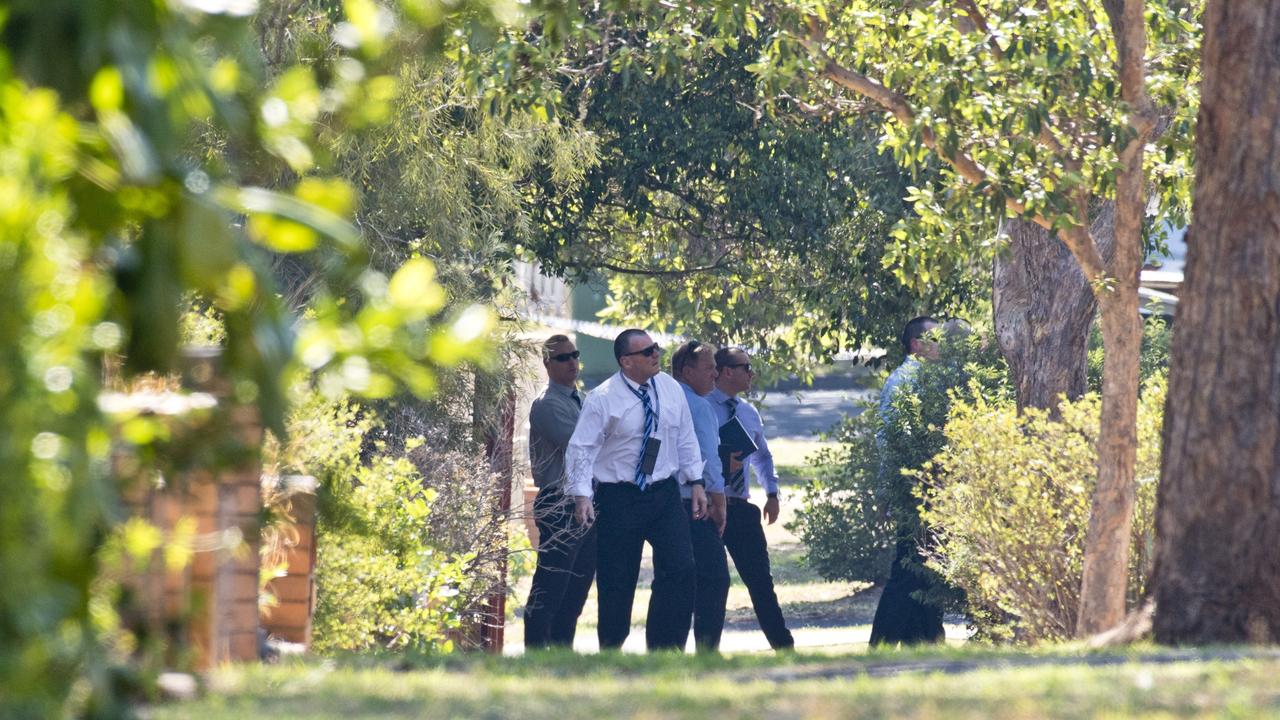
The alleged murder scene
Inside the bedroom, a number of the walls had blood stain droplets, and a large pool of blood on the floor had what looked to be drag marks of blood directing into the hallway.
The jury heard the markings were likely caused by a dragging or a crawling motion and it was likely Mr Weaver had been on the floor for some time before being moved.
Inside the ransacked and fire-stained bedroom, which was missing a bed, DNA samples were taken from cigarette butts found in a bloody ashtray, a lighter, a bloody Tooheys New beer bottle, a green jerry can, and multiple items of clothing, towels, and bedding.
The DNA results from each item were not read into the public record.
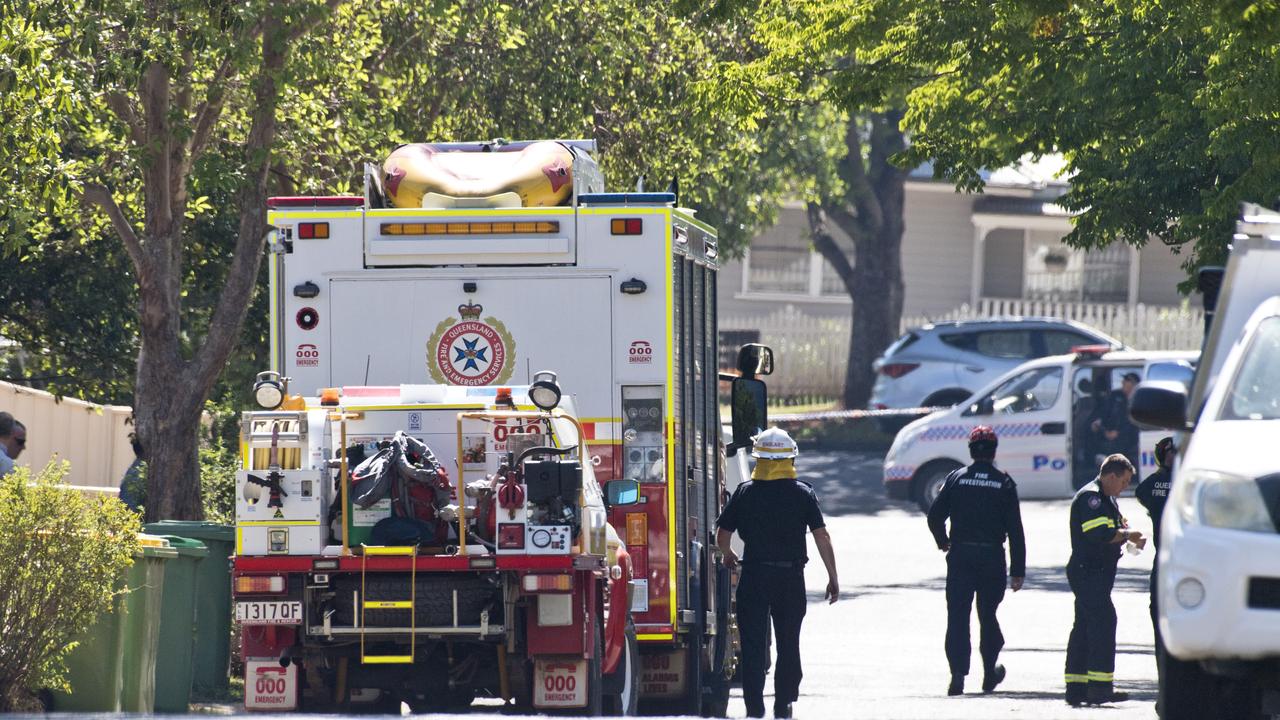
The jury heard that one of the clothing items found in the bedroom was a pair of belted light blue jeans which contained Mr Weaver’s keys and wallet in the pockets.
A picture of Mr Weaver’s grandchild was inside the wallet alongside cash.
Photos taken of the fire-affected bathroom showed there was a large amount of congealed blood on the shower flood along with what was said to be a handful or so of human remains.
The jury heard blood was found on the walls of the bathroom, shower, and items on the vanity.
The second knife was located in the toilet cubicle along with a mop bucket and chair – however no blood was detected in the room which was located near the bathroom and bedroom.
Victim’s blood found on shirt and car
When police declared Harris’s home a crime scene they found a washing machine going – inside was a dark blue lighter, a pair of black shorts, and a pair of black underwear with the brand Tradie on the elastic in orange.
The jury heard no blood was detected on those items, on or in the washing machine, or in Harris’ shower.
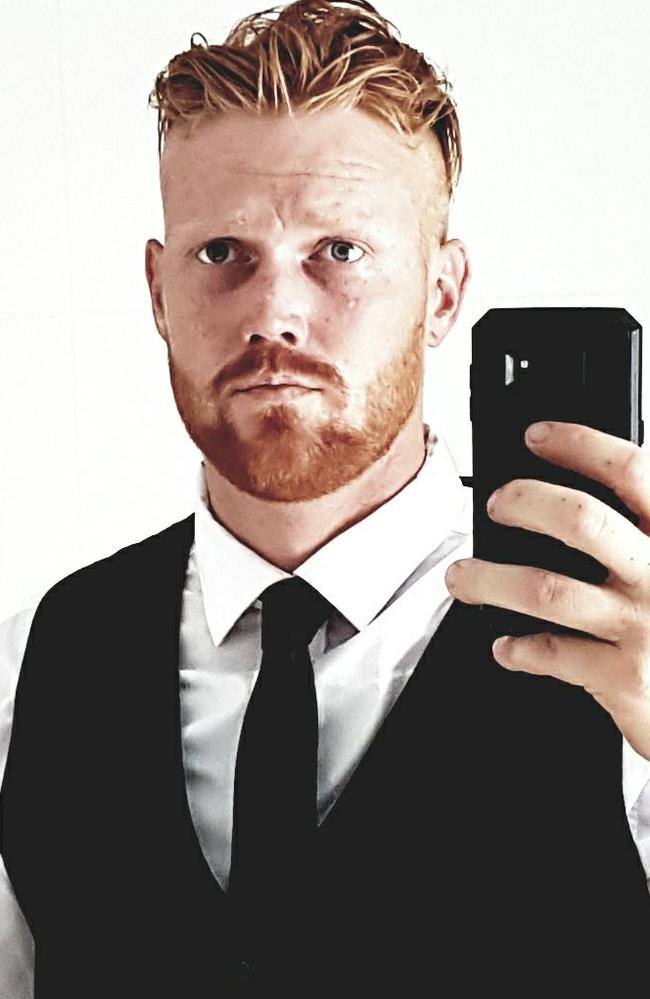
However, in Crown prosecutor Nicole Friedewald’s opening address to the jury on Tuesday, November 19, she said Mr Weaver’s blood was found on a black T-shirt draped over a lantern on Mr Harris’ patio area.
Ms Friedewald told the jury forensics also found Mr Harris’ and Mr Weaver’s DNA on the mouthpiece of a beer bottle found in Mr Weaver’s backyard.
She said Mr Weaver’s DNA was also found on and inside Mr Harris’ car.
During the cross-examination of the forensic officer who took the test results from Mr Harris’ car Barrister Barrister Douglas Wilson pointed out an inaccuracy in the officer’s note-taking records, as all items found within the car were itemised on her list, in particular a packet of concentrated fabric softener.
Mr Harris is represented by two barristers, Mr Wilson and Mr Seewald, who are instructed by MacDonald Law.
The trial continues on Monday, November 25, 2024.



